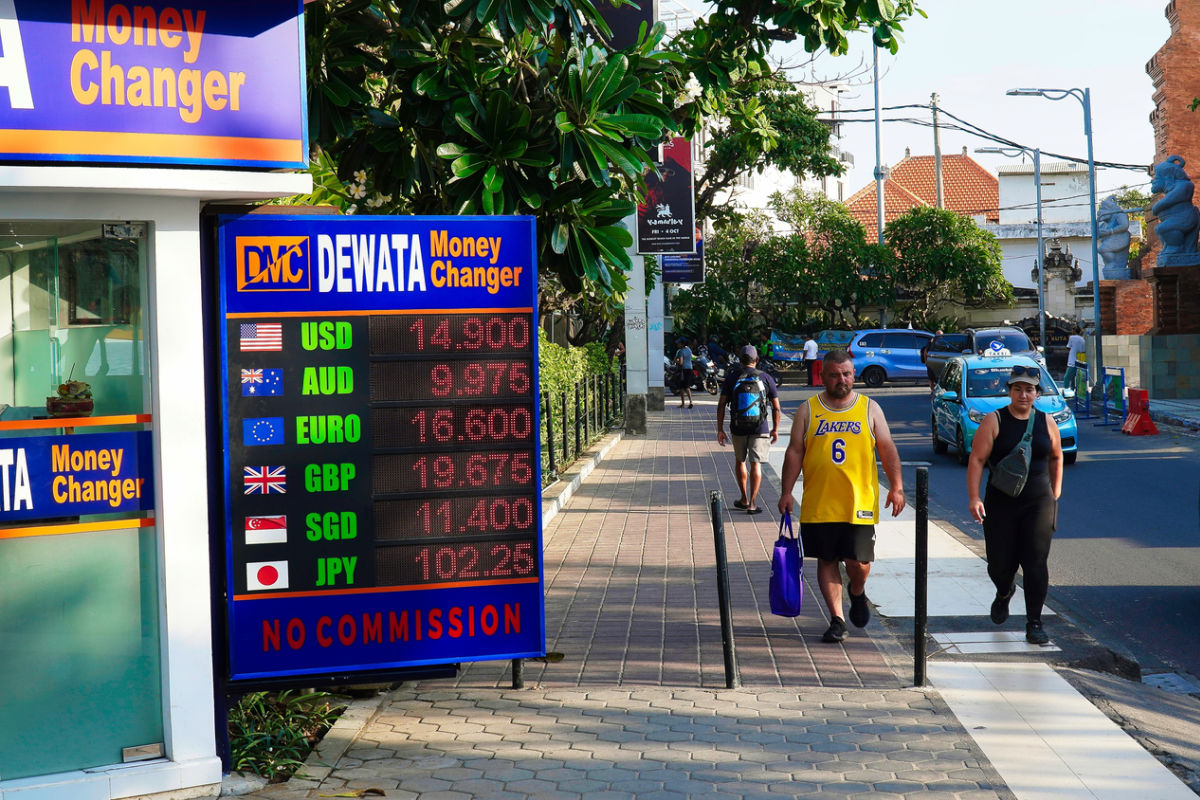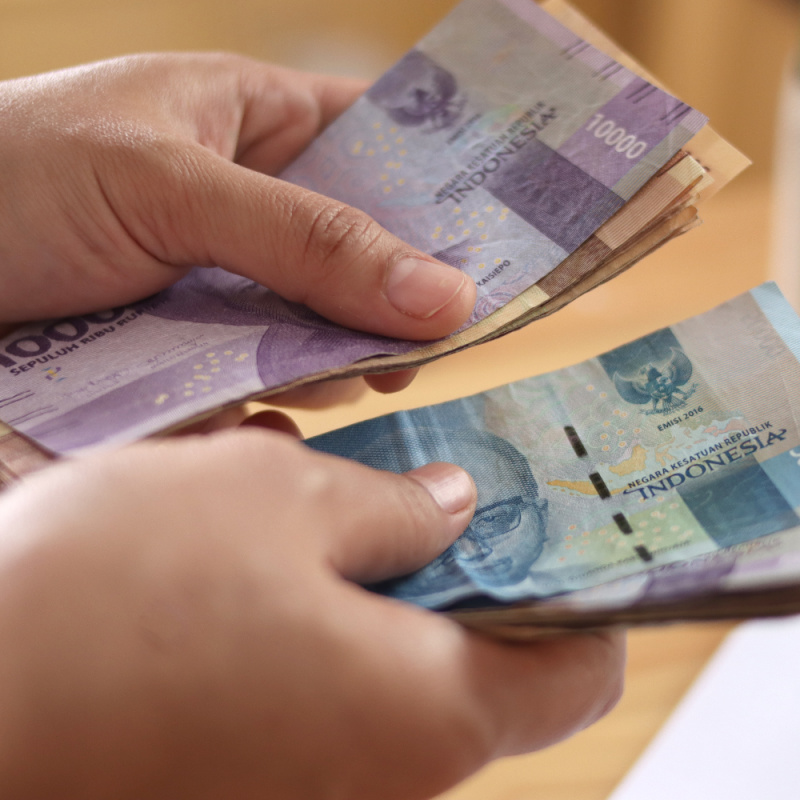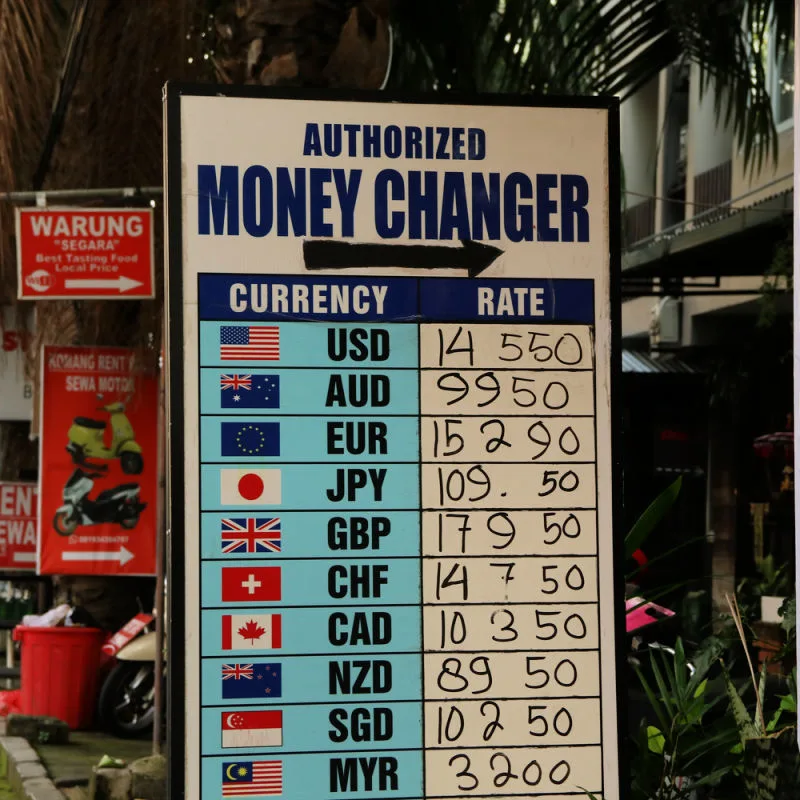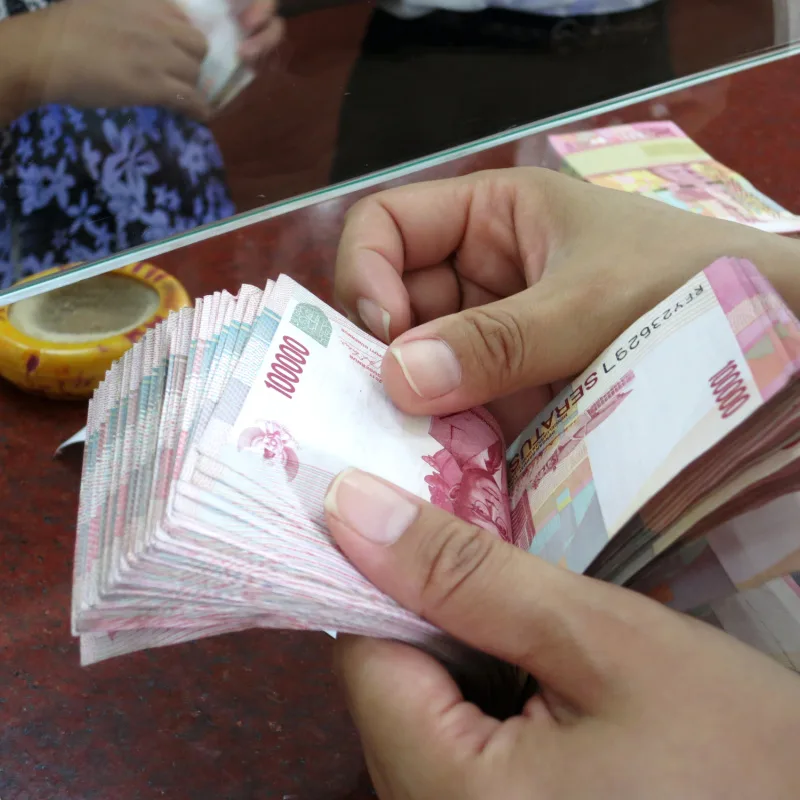Leaders in Bali have committed to cracking down on illegal money changers and money exchange scams in and around top attractions in Ubud.
The situation is being investigated by the Bali Civil Police team, Satpol PP, in an effort to ‘clean up’ the tourism sector.

Satpol PP Gianyar has been working to identify, close down, and bring to justice illegal money-changing operations in the popular tourist destination of Ubud.
Officers have confirmed that they have identified a series of operations that were not only conducted by opportunistic scammers but also by establishments deliberately set up for criminal activities. Satpol PP Ginayar has been clear that these operations must be closed down immediately to protect tourists and the reputation of the world-famous destination.
The Acting Head of the Gianyar PP Police Officer, I Made Arianta, confirmed that there are currently 105 known money-changing operations in the Gianyar Regency area, which includes Ubud, Tegallalang, Tampaksiring, and Sayan.
He cited a number of violations that his teams have discovered during their recent investigations, including money-changing outlets that do not showcase the legally registered name of the PT company, moneychangers offering above-average exchange rates, operations using semi-permanent buildings or short-term contracts, illegally hired employees or staff not in uniform, and not displaying permits.
He confirmed that a number of the 105 recorded moneychangers have only been in operation for 2-3 months, noting a rise in the number of illegal outlets in the area.
Arianta told reporters, “These businesses need to be coached, considering that lately there have been complaints from the community of business people and tourists about the MC service that is not up to standard.”
Arianta and his team held a meeting, inviting moneychangers and business owners to attend a coaching session to ensure that all operations had the necessary information to work within the law.
He told reporters that the moneychanger “entrepreneur gathering activity was for general coaching. For entrepreneurs who did not come, they will be followed up with follow-up coaching to check the license because there is an indication of scamming or fraud carried out by money changer employees.”
“Actions like this are usually done by moneychangers who have not been licensed, so we feel the need to do licensing compliance coaching for moneychanger business actors in Gianyar.”
Arianta told tourists that all licensed moneychangers in Bali should display their permit from Bank Indonesia in a clearly visible place.
He also urged tourists and the general public to report any suspicious activities directly to the police, so that investigations can be launched.

Money-changing scams have been a longstanding issue in Bali and many popular destinations worldwide.
Only in May 2025 were Bali tourists warned of common and easy-to-fall-for money scams. While many seasoned Bali tourists who return to the island year after year know how to avoid these common scams, it is something that first-time visitors often learn about after it’s too late.

To avoid money changer scams, tourists are advised to use an ATM to withdraw cash where possible, rather than exchanging money. There are plenty of legitimate money exchange out there. For those staying in resort hotels, this is often a service that is available within the resort complex, and top hotels will not only display their licences but also offer the correct exchange rate on the day.
It is also possible to exchange cash at most banks in Bali, though tourists must remember to bring their passports with them. There are also plenty of genuine money exchange outlets upon arrival at both the international and domestic terminals at I Gusti Ngruah Rai International Airport.

Tourists are urged to always count their money on top of the counter when they receive their exchange. This is standard practice, and a legitimate money changer will not be offended. In many money exchange scams, the teller will count out the full amount of the exchange in front of the tourist, then, as they shuffle the notes into a pile, swipe several notes under the counter to keep for themselves.
Remove All Ads & Unlock All Articles… Sign up for The Bali Sun Premium

Plan Your Bali Holiday:
Book The Best English Speaking Drivers For Airport Transfers & Tours
Choose From Thousands of Bali Hotels, Resorts, and Hostels with Free Cancellation On Most Properties
Book Cheap Flights To Bali
Don’t Forget Travel Insurance That Covers Medical Expenses In Bali
For the latest Bali News & Debate Join our Facebook Community
SUBSCRIBE TO NEW POSTS
Enter your email address to subscribe to The Bali Sun’s latest breaking news, straight to your inbox.
Discover more from The Bali Sun
Subscribe to get the latest posts sent to your email.

Traveller60
Tuesday 30th of September 2025
Good work Satpol. Regulating money changers with a recognised bank or equivalent accreditation is a good move. It should give people more security knowing that they are dealing with an accredited organisation.
Paul morris
Tuesday 30th of September 2025
Heard this story many times before about closing down crooked money exchanges but there are so many of them you will have a never ending job and you will fail because as soon as you have closed them down they will reopen when the authorities have gone. Good luck at least it’s worth a try.
Sundeep
Tuesday 30th of September 2025
Oh yes, another "crackdown".
Every 3 months announce a crackdown of something - villa break ins, phone thieves, visa rules, illegal investors, unlawful constructions, waste management, etc etc.
Yet absolutely nothing changes. Really cracking it these Wayans. Clownshow.
Exp
Monday 29th of September 2025
"He cited a number of violations that his teams have discovered during their recent investigations, including moneychangers offering above-average exchange rates."
High rate is not a violation. The crime is that they outright scam people by (at the end) handing over less rupiah than advertised. And how are these shops not immediately shut down by local gov. as the official rate is published twice a day online. Why?